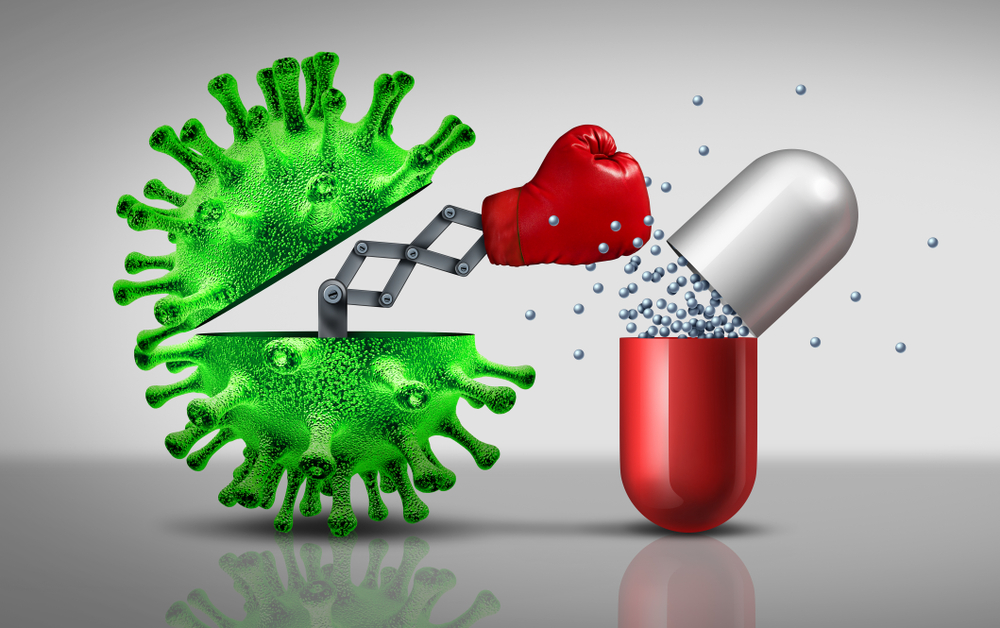Doing our bit to slow antibiotic resistance
Featured Products Promotional FeaturesPosted by: Dental Design 23rd March 2023

Although understanding of pathogens has advanced considerably in the last few decades, infectious microorganisms are still one of the greatest threats to our health. Pathogens have evolved to resist our best efforts to destroy them, resulting in “superbugs” with antibiotic resistance that present significant healthcare challenges.
Unfortunately, antibiotic resistance is a natural phenomenon that can’t be stopped. This process can, however, be slowed, so what can healthcare professionals do to help ensure that this is the case?
What is a superbug?
The term “superbug” is applied to strains of fungi, bacteria, viruses and parasites that have become resistant to commonly used antibiotics and other medications that would normally treat any infections they cause.[1]
In the UK, there are a number of superbugs. You’re probably aware of some of the more common of these, including methicillin-resistant staphylococcus aureus (MRSA), Clostridium difficile, and the strains of bacteria responsible for causing multi-drug-resistant tuberculosis.[2]
However, new superbugs are being discovered all the time, presenting novel challenges for healthcare professionals. For example, in 2010 news reports detailed how superbug NDM-1 was found in UK hospitals. At the time, there were considerable fears that this would result in a global pandemic – though thankfully this never came to pass.[3] Earlier this year, scientists also discovered a potentially-lethal superbug in pork products being sold in UK supermarkets.[4] This new pathogen was tested and found to be resistant even against “last resort” antibiotic treatments, meaning that, so far, there is no reliable solution to treating this new strain.
Superbugs are incredibly dangerous, and it’s estimated that these antibiotic-resistant pathogens are responsible for over 1.2 million deaths around the globe each year.[5] But why do superbugs exist and how do they evolve?
 Influencing antibiotic resistance
Influencing antibiotic resistance
Many pathogens are imbued with the ability to evolve and mutate so that they can survive measures created to destroy them. A good example of this is the influenza virus – through a process called antigenic drift, flu viruses develop immunity against the vaccine developed each year to kill them, evolving into a stronger virus that requires a new vaccine the following year.[6]
Similarly, superbugs are pathogens that have adapted to survive treatment from antibiotics. The emergence of superbugs is accelerated by the misuse and overuse of antibiotics, both among humans and in agricultural industries.[7] To contextualise this, it’s likely that the superbug found in pork samples emerged due to the extensive use of antibiotics in farming processes.
Lack of clean water and poor infection control procedures can also influence antibiotic-resistance, especially as this means that these pathogens can spread more freely, and therefore have a greater chance of mutating and forming immunities.[8]
Taking measures to prevent the spread
The main fear surrounding superbugs is that, eventually, one will emerge that is lethal and completely untreatable. If this were to happen, it would likely cause widespread death and untold damage to economies across the globe.
On a positive note, however, the battle against superbugs is, currently, not insurmountable. In fact, it was only in June 2022 that the NHS announced that it would be rolling out two “superbug-busting” drugs that could help those with life-threatening infections caused by superbug infections.[9]
In the wider conversation surrounding superbugs there are talks across the globe about adopting certain protocols in hospital settings to help prevent them spreading, and limiting antibiotics. Plus, there are other ideas such as utilising bacteriophages (bacteria-killing viruses) to destroy superbugs, and the potential to use nanotechnology to create “smart antibiotics” that could target superbugs far more effectively.[10] While none of these ideas have come to fruition yet, it’s still encouraging to know that there is significant research and attention being dedicated to the problem.
Until then, healthcare professionals can help to curb the emergence of superbugs by practising an exceptional standard of infection control within their settings. The Signature Hand and Surface Sanitiser from Initial Medical is a trusted choice. Able to kill 99.99% of pathogens on surfaces and hands, this versatile spray can be utilised throughout your practice. Plus, it has been dermatologically tested to ensure that it’s kind to skin, making iot safe for repeated use.
An issue of our times
The recent pandemic has proven that we should never underestimate the power of microorganisms. Superbugs pose an even greater threat, and as we cannot guarantee that there will always be a solution available to fight these microorganisms, slowing the development of antibiotic resistance is our safest way forward. By understanding superbugs and taking steps to ensure that infection control standards are exemplary in healthcare settings, we can all work together to help ensure that antibiotic resistance is less of a threat to us all.
To find out more, get in touch at 0870 850 4045 or visit the website today www.initial.co.uk/medical.
-Ends-
Rebecca Waters, Category Manager, Initial Medical
Rebecca has worked in the Healthcare sector for the past 17 years and was a Research Chemist with Bayer Cropscience prior to joining Rentokil Initial in 2003. She keeps up to date on all developments within the clinical waste management industry and is an active member of the CIWM, SMDSA and BDIA.
About Initial Medical Waste
Initial Medical set the standard in healthcare and infectious waste management in the UK, providing a reliable, effective and fully compliant service built around customer needs and delivered by our highly trained local teams. We are ISO 9001:2015 accredited, with technology fully integrated into our operations, providing full traceability of service delivery, electronic waste documentation and the best customer experience possible. We also offer innovative healthcare waste management services and infection control products, to help break the chain of transmission and prevent cross contamination.
Initial Medical are a company with a ‘World Class’ Health and Safety record, and ISO 45001:2018 accreditation. We are also accredited to ISO 14001:2015 environmental standards, and pride ourselves on our sustainable approach with a focus on delivering eco-friendly products and operational solutions.
For further information please visit www.initial.co.uk/medical or Tel: 0870 850 4045
Media enquiries:
For more information, please contact:
erica@ekcommunications.net
01227 265700
[1] Mayo Clinic. What Are Superbugs And How Can I Protect Myself From Infection? Link: https://www.mayoclinic.org/diseases-conditions/infectious-diseases/expert-answers/superbugs/faq-20129283#:~:text=Superbugs%20are%20strains%20of%20bacteria,tract%20infections%20and%20skin%20infections. [Last accessed September 22].
[2] NHS. Antibiotic Resistance. Link: https://www.nhs.uk/conditions/antibiotics/antibiotic-antimicrobial-resistance/ [Last accessed September 22].
[3] BBC News. New ‘Superbug’ Found in UK Hospitals. Link: https://www.bbc.co.uk/news/health-10925411 [Last accessed September 22].
[4] Plant Based News. An Antibiotic-Resistant Superbug Has Been Found In UK Pork Products. Link: https://plantbasednews.org/lifestyle/health/pork-superbug-discovered-uk/ [Last accessed September 22].
[5] Healthline. Drug-Resistant Superbugs Are Causing More Deaths: What’s Being Done? Link: https://www.healthline.com/health-news/drug-resistant-superbugs-are-causing-more-deaths-whats-being-done#:~:text=The%20research%2C%20recently%20published%20in,million%20deaths%20a%20year%20globally. [Last accessed September 22].
[6] Centres for Disease Control and Prevention. How Flu Viruses Can Change: “Drift” and “Shift”. Link: https://www.cdc.gov/flu/about/viruses/change.htm#:~:text=One%20way%20flu%20viruses%20change,)%20and%20NA%20(neuraminidase). [Last accessed September 22].
[7] World Health Organization. Antibiotic Resistance. Link: https://www.who.int/news-room/fact-sheets/detail/antibiotic-resistance#:~:text=Antibiotic%20resistance%20is%20accelerated%20by,limit%20the%20spread%20of%20resistance. [Last accessed September 22].
[8] World Health Organization. Antimicrobial Resistance. Link: https://www.who.int/news-room/fact-sheets/detail/antimicrobial-resistance#:~:text=Misuse%20and%20overuse%20of%20antimicrobials,be%20resistant%20to%20antimicrobial%20treatment. [Last accessed September 22].
[9] NHS. NHS lands breakthrough in global battle against superbugs. Link: https://www.england.nhs.uk/2022/06/nhs-lands-breakthrough-in-global-battle-against-superbugs/ [Last accessed September 22].
[10] The Conversation. How scientists are combating ‘superbugs’: 4 essential reads. Link: https://theconversation.com/how-scientists-are-combating-superbugs-4-essential-reads-127080 [Last accessed September 22].









